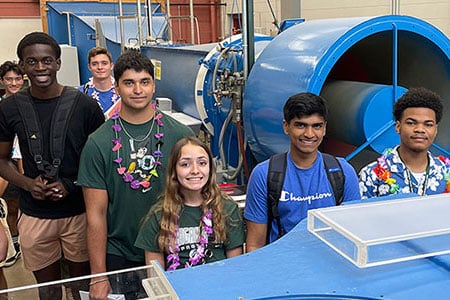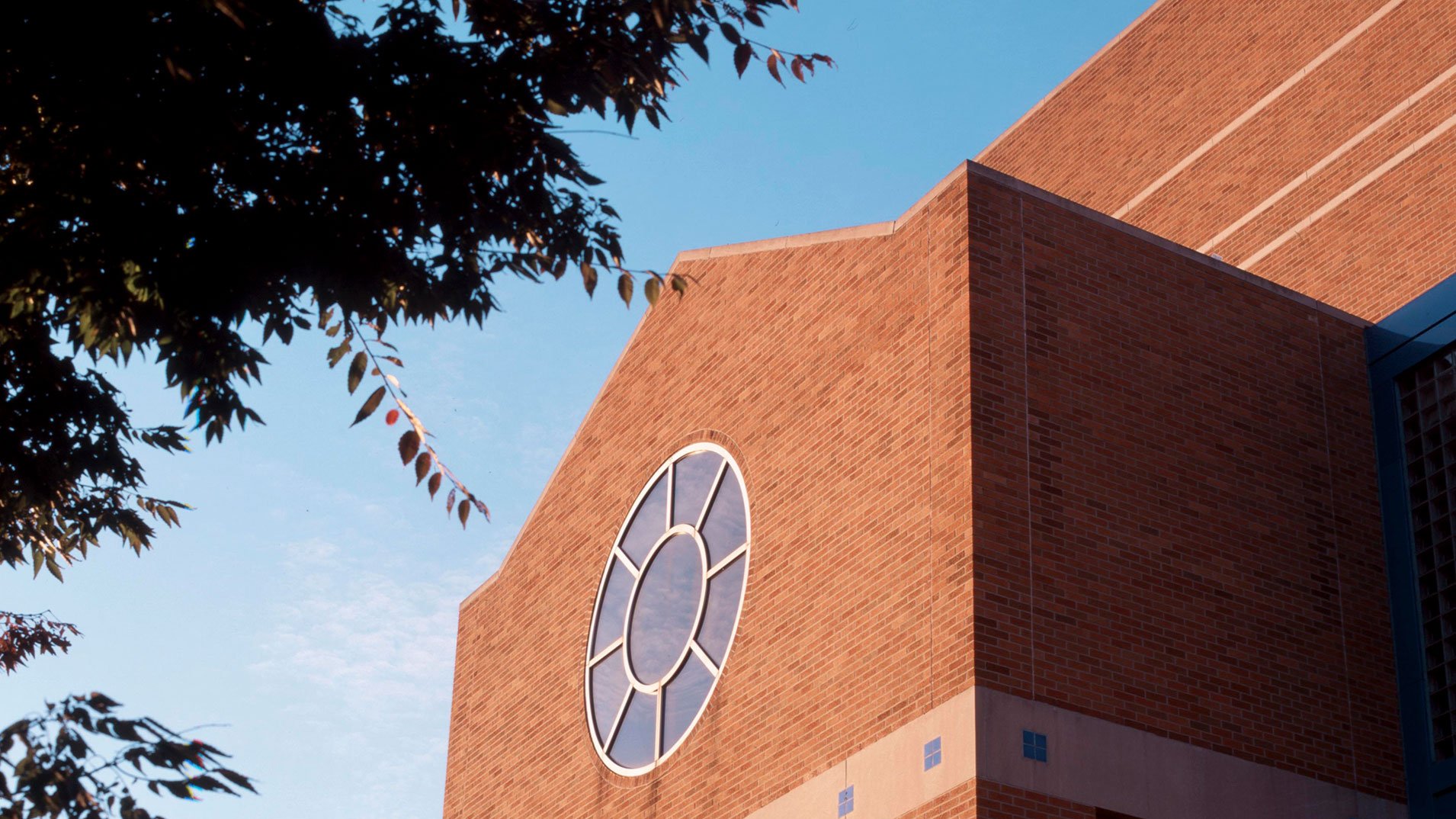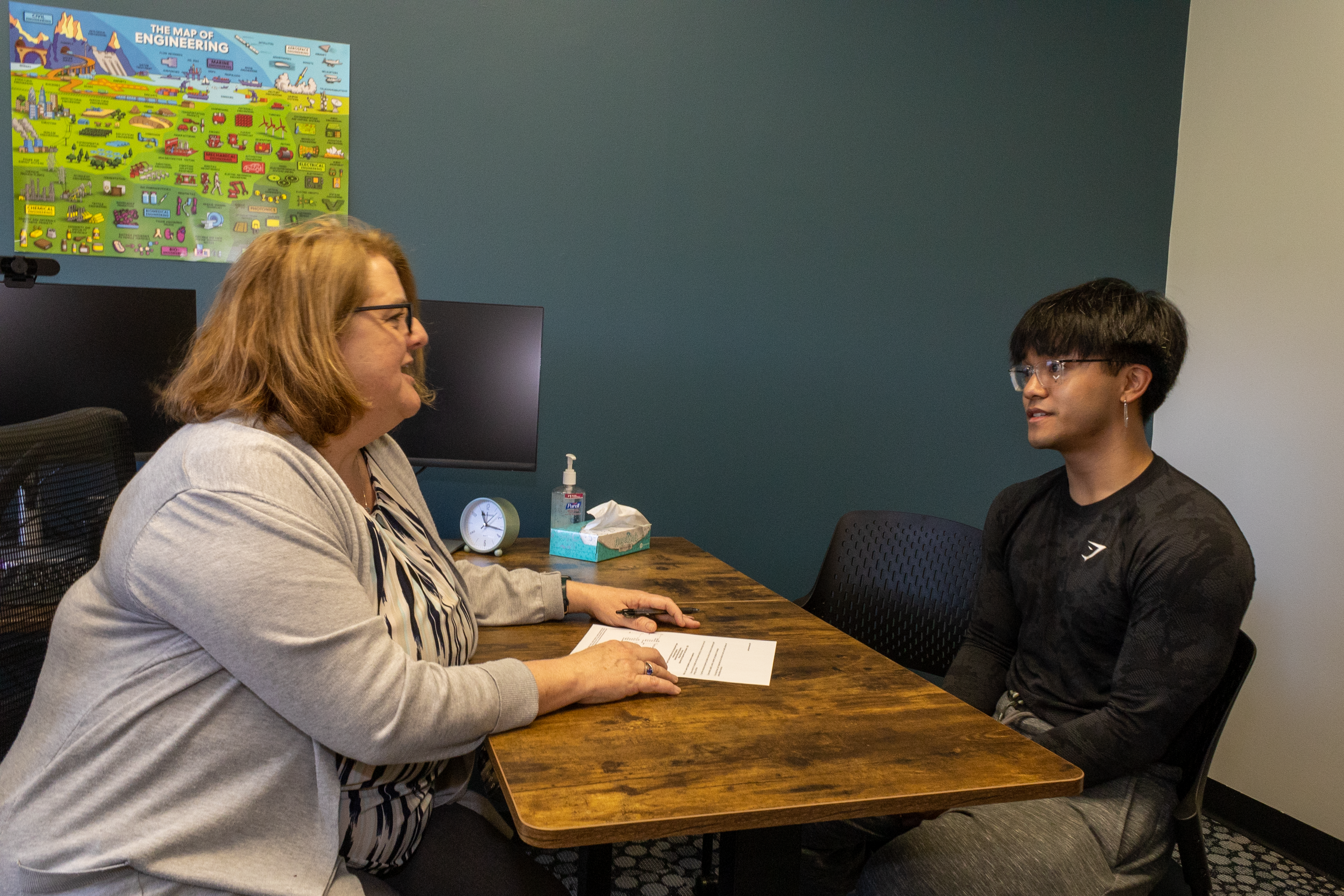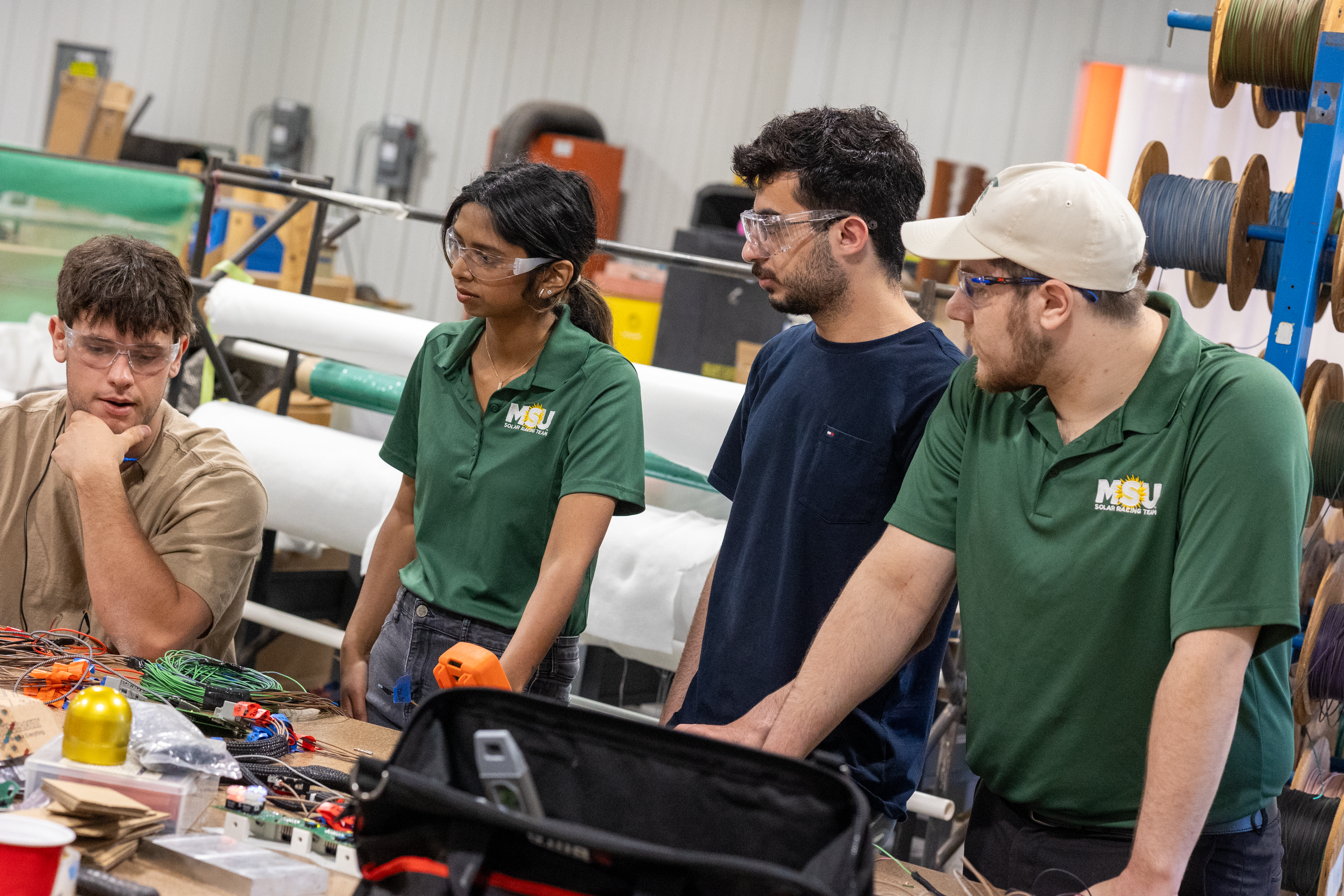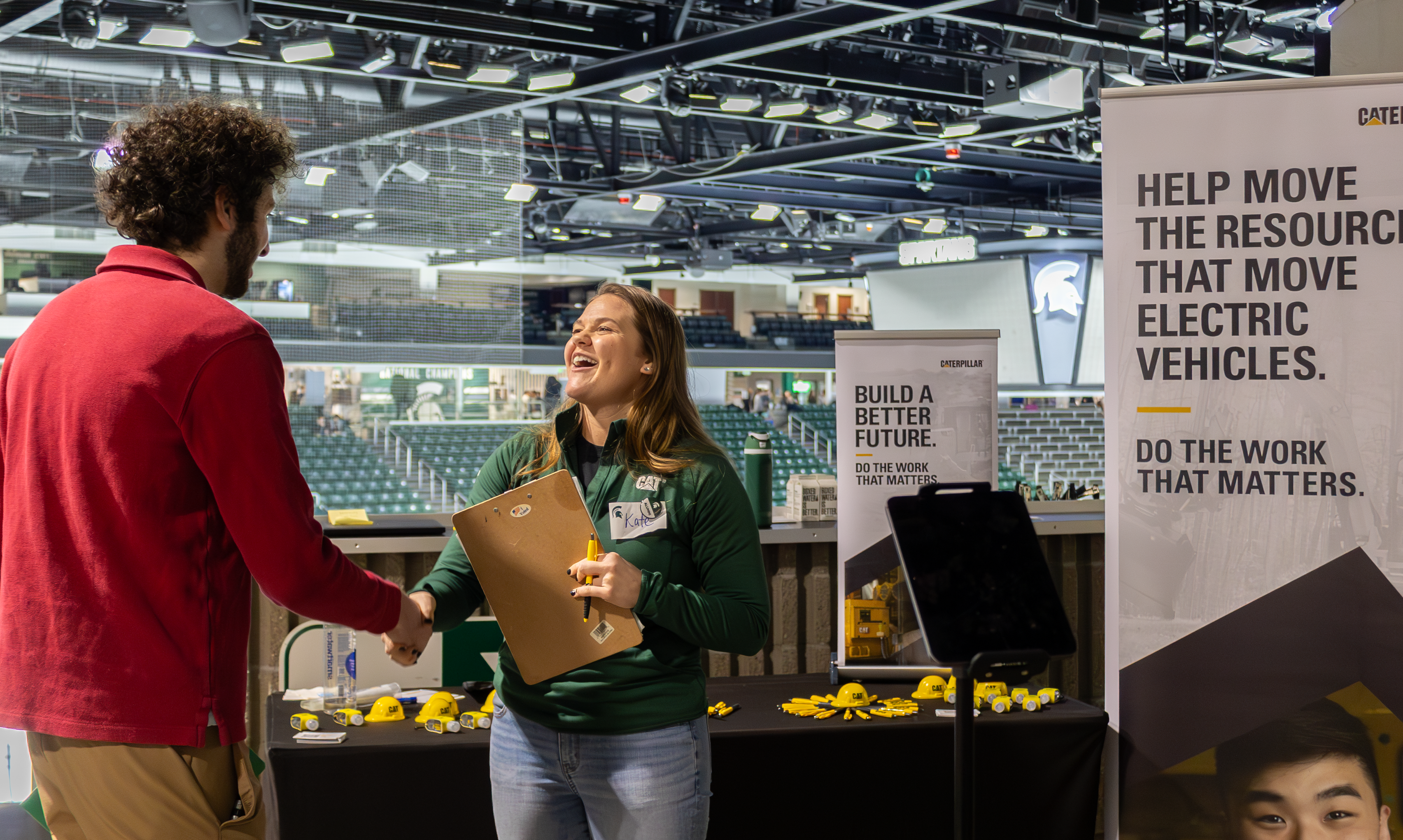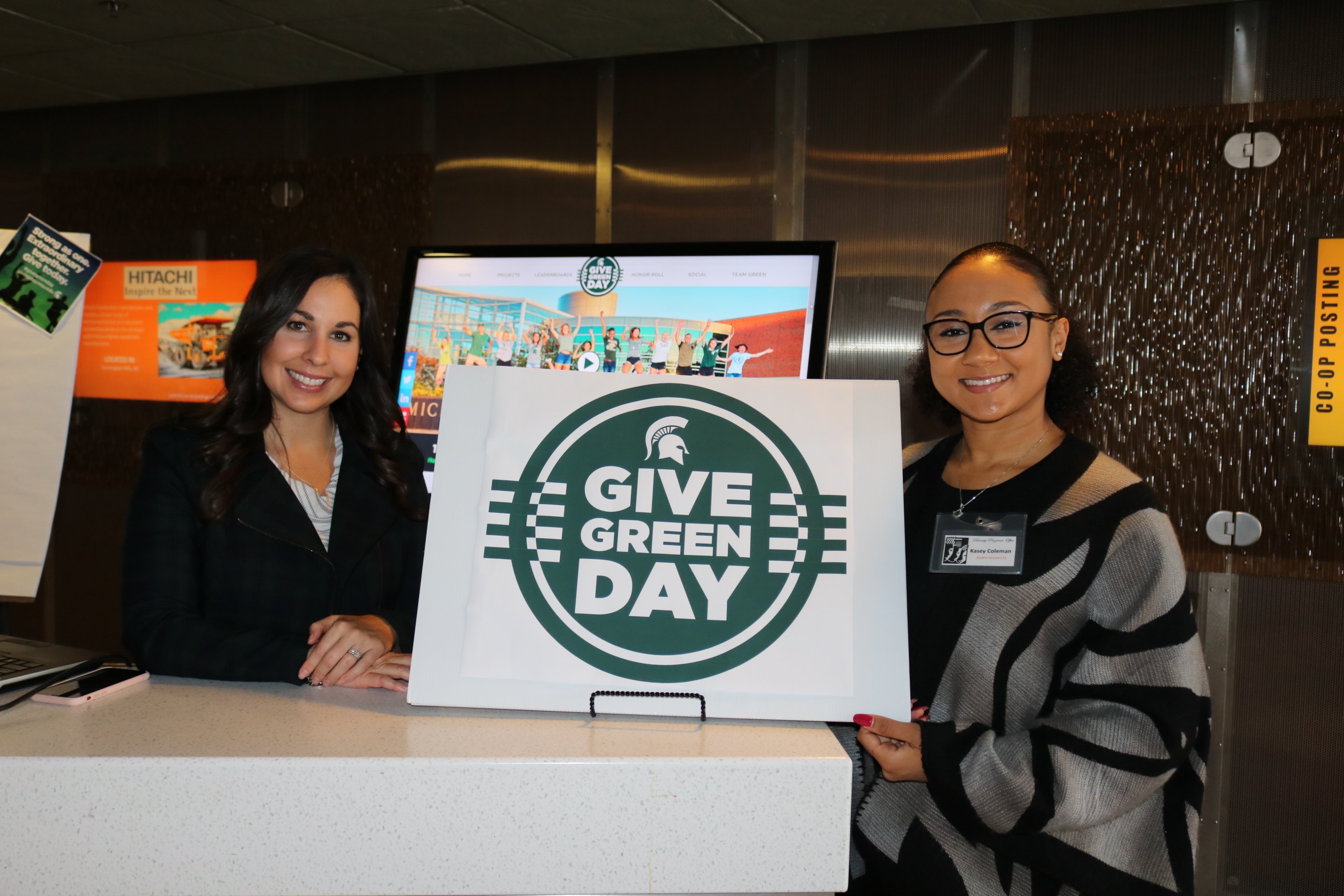Undergraduate Studies
- First-Year Engineering CoRe Experience
- New Student Orientation
- Current Student Advising
- Scholarships and Financial Resources
- Design Day
- Education Abroad
- Student Groups
- Graduation
- The Center for Spartan Engineering
- Undergraduate Research
- Enrollment Data
- Professional Licensure and Certification
- Student Resources
- Contact Us
- Admissions
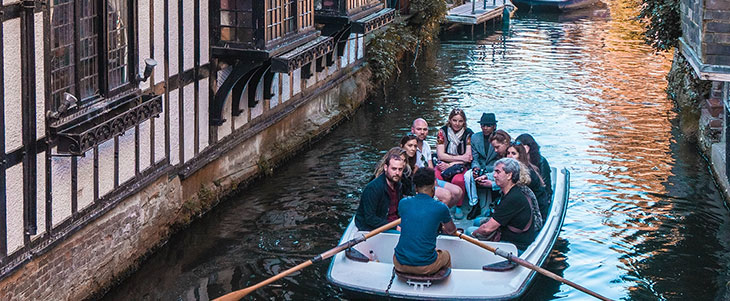
Welcome to education abroad in the College of Engineering. Here you will find a selection of programs for your experience. Most programs are specifically designed for selected majors in order to assure your academic success. To get started, have a conversation with your academic advisor about how education abroad works with your academic plan.
Fill out the interest form to receive more information:Interest Form
Follow us on Instagram: @msuegrglobal
Engineering First-Year Experience Abroad
Provider-Based Programs
ARGENTINA
CEA CAPA Buenos Aires Center (Buenos Aires, Argentina)
May - July (6 weeks)
Courses (can take up to 2): PHY 184 & PHY 192, IAH 211C, ISS 328, HST 453
Priority Deadline: January 15
CZECH REPUBLIC
CEA CAPA Prague Center (Prague, Czech Republic)
May - July (8 weeks)
Courses (can take up to 2): MTH 234, MTH 235, MTH 309, STT 351, CSE 260, IAH 241F, IAH 231A, HST 452, REL GCU
Priority Deadline: January 15
FRANCE
CEA CAPA Paris Center (Paris, France)
May - July (7 weeks)
Take 1 technical course + 1 non-technical course
Technical: MTH 234, MTH 235, CE 221, ME 201
Non-Technical: ISS 320, IAH 241C, HST 452
Deadline: January 15
ITALY
CEA CAPA Rome Center (Rome, Italy)
May - July (8 weeks)
Courses (can take up to 3): ME 201, CSE 231, ME 333/CE 321, IAH 211+, HST 332, HST 452
Priority Deadline: January 15
Summer on the Italian Coast (Sorento, Italy)
May – August (10 weeks)
PHY 184 + PHY 191 and 1 or 2 electives
Priority Deadline: January 15
SPAIN
CEA CAPA Madrid Center (Madrid, Spain)
May - July (8 weeks)
Courses (can take up to 2): CSE 260, ME 361, MTH 234, STT 351, General Education courses
Priority Deadline: January 15
CEA CAPA Barcelona Center (Barcelona, Spain)
June (4 weeks), or July (4 weeks), or June & July (8 weeks)
Courses (can take up to 2): CSE 231, ISB 202 & ISB Lab, General Education Courses
Priority Deadline: January 15
Faculty-Led Programs
MADRID
Summer Engineering in Madrid (Madrid, Spain)
June - August (6 weeks)
Option 1: ME 222 and SPN 290 (no pre-req)
Option 2: MSE 250 and SPN 290 (no pre-req)
Deadline: March 1
TANZANIA
Designing Technology Solutions for Schools in Africa
April - May (4 weeks)
EGR 488 (3 credits)
Deadline: February 15
COSTA RICA
Ecological Engineering in the Tropics
May (2 weeks)
ANR 475 or BE 475 or BE 491 or EGR 475 (4 credits)
Deadline: February 1
SOUTH KOREA & JAPAN
Global Engineering in Seoul and Tokyo
May (2 weeks)
Deadline: January 15
University-Based Programs
IRELAND
University College Dublin (Dublin, Ireland)
May - July (7 weeks)
Courses: PHY 184, PHY 192 & ISS 315 (or HST 452 for HC)
Priority Deadline: January 15
HONG KONG
Hong Kong University of Science and Technology (HKUST)
June - August (8 Weeks)
Courses: Selection of technical, general education, and elective courses.
Deadline: January 15
SOUTH KOREA
Yonsei University
June - August (6 weeks)
Courses: Selection of technical, general education, and elective courses.
Deadline: February 15
Course Offerings and Equivalencies
Fill out the interest form to receive more information: Interest Form
Follow us on Instagram: @msuegrglobal
Questions?
Email Us
FRANCE
CEA CAPA Paris Study Center (Paris, France)
Fall Semester: August to December
Spring Semester: January to April
Selection of ECE, ME, MTH, general education, and elective courses.
Deadline: Feb 15 (Fall)/Sep 15 (Spring)
SKEMA Business School (French Riviera, France)
Fall Semester: September to December
Spring Semester: January to April
Selection of CE, ME, MTH, PHY, IAH/ISS, other technical courses and general electives.
Deadline: Feb 15 (Fall)/Sep 15 (Spring)
HONG KONG
Hong Kong University of Science and Technology (Hong Kong, China)
Fall Semester: Late-August to December
Spring Semester: Late-Feb to Late-June
Selection of ME, CSE, ECE, CE, ENE, other technical courses and general electives.
Deadline: March 1 (Fall)/August 15 (Spring)
IRELAND
University of Limerick (Limerick, Ireland)
Fall Semester: August to December
Spring Semester: January to May
Selection of Engineering, University requirement, and general electives.
Deadline: Feb 15 (Fall)/Sep 15 (Spring)
NETHERLANDS
Vrije Universiteit Amsterdam (Amsterdam, Netherlands)
Fall Semester: August to December
Spring Semester: February to June
Selection of CSE, technical, general education, and elective courses.
Deadline: January 15 (Fall) / August 15 (Spring)
SCOTLAND
Edinburgh Napier University (Edinburgh, Scotland)
Fall Semester: August to December
Spring Semester: January to May
Selection of Engineering, University requirement, and general electives.
Deadline: Feb 15 (Fall)/Sep 15 (Spring)
SOUTH KOREA
Sogang University (Seoul, South Korea)
Fall Semester: August to December
Spring Semester: February to June
Selection of Engineering, University requirement, and general electives.
Deadline: Feb 15 (Fall)/Sep 15 (Spring)
Yonsei University (Seoul, South Korea)
Fall Semester: September to December
Spring Semester: Late-Jan to Late-May
Selection of ME, CSE, CE, ECE, CHE, MTH, other technical courses and general electives.
Deadline: March 1 (Fall)/October 1 (Spring)
SPAIN
Universidad de Alicante (Alicante, Spain)
Fall Semester: September to December
Spring Semester: January to May
Selection of BE, CE, CSE, ENE, PHY, IAH/ISS, other technical courses and general electives.
Deadline: Feb 15 (Fall)/Sep 15 (Spring)
Universidad Carlos III de Madrid (Madrid, Spain)
Fall Semester: September to December
Spring Semester: January to April
Selection of CE, CSE, ECE, ME, MSE, MTH, PHY, IAH/ISS, other technical courses and general electives.
Deadline: Feb 15 (Fall)/Sep 15 (Spring)
Universidad Pontificia Comillas (Madrid, Spain)
Fall Semester: September - December
Spring Semester: Mid-Jan - May
Selection of ME, MTH, PHY, MSE, CEM, BS, SPN, technical, general education, and elective courses.
Deadline: March 1 (Fall)/September 1 (Spring)
Universidad Politécnica de Madrid (Madrid, Spain)
Fall Semester: September - December
Spring Semester: February - May
Selection of MSE, CHE, ME, technical, general education, and elective courses.
Deadline: March 1 (Fall)/September 1 (Spring)
Course Offerings and Equivalencies
Fill out the interest form to receive more information: Interest Form
Follow us on Instagram: @msuegrglobal
Questions?
The College of Engineering has partnered with Absolute Internship (AI), a pioneering firm known for their award-winning global internship program, in order to leverage the vast network of global partnerships AI has cultivated over the years. Students can expect to be placed in a meaningful internship in their field of study/interest.
In addition to the internship placement, AI offers cultural activities, visa support, a local transportation pass, and career development workshops as part of the in-country experience. Internships are full-time (35 to 40 hours per week), Monday to Friday.
Find out more about the benefits of an international internship with Absolute Internship
Due to immigration and visa regulations, all international internships are unpaid.
There is no language requirement for an internship, except for internships in Seoul which require Korean language skills. Students who have language skills will have a broader number of placements available to them.
Current placement locations for engineering internships:
Europe
- Madrid
- Lisbon
- Stockholm
Asia
- Seoul (Korean language required)
- Singapore
- Tokyo
Contact: Jeffrey Tsang, Assistant Director of Advising Initiatives (tsangjef@msu.edu) Engineering Education Abroad
There are several international research opportunities through MSU and the College of Engineering. Students can participate in the following programs for research:
- Hong Kong University of Science and Technology Summer Research
- Yonsei University Research Internship
- Arcadia STEM Research
- Various locations in the UK, Ireland, and Spain
Contact: Lindsay Naylor, Assistant Director of Advising (naylorli@msu.edu) Engineering Education Abroad
To apply for an Engineering Education Abroad Scholarship, please complete this online application.
MSU Education Abroad - Getting Started: Costs and Financing
MSU Education Abroad - Getting Started: Scholarships
MSU Education Abroad - National Scholarships
MSU Honors College: Scholarships
- Attend a Get Started Studying Abroad Session
- Attend an education abroad information session.
- Meet with an education abroad advisor and your academic advisor to talk about program options, how to fit it into your academic plan, and course selection.
- Look at the course equivalencies to see what you can take abroad.
- Complete an application through the MSU Education Abroad portal.
Questions?
Email Us (eduabroad@egr.msu.edu)
Fill out the interest form to receive more information: Interest Form
Follow us on Instagram: @msuegrglobal
Do I need a passport or visa?
Passports
U.S. and non-U.S. citizens need a valid passport both to enter other countries and to return to the United States. If you already have a passport, make sure it is valid until at least six months after your return date. If you must apply for or renew a passport, APPLY EARLY, since a minimum of eight to 10 weeks is usually required for processing. During peak travel seasons, more processing time is required.
Passport forms are available at many federal and state courts, probate courts, some county/municipal offices and some post offices. You can also apply or renew online at the U.S. Department of State - Bureau of Consular Affairs website.
Visas
A visa is official permission granted by the authorities of a country where you will study or travel that allows you to enter and remain in that country for a specific purpose. The visa itself is frequently a stamp in your passport, not a separate document. You will need a passport before applying for a visa and the entire "passport-plus-visa process" may take several months, so start early.
It is your responsibility to inquire about visa requirements for all countries you plan to visit while abroad; this includes countries that you plan to visit before or after your education abroad program.
If you are not a U.S. citizen, consult the embassy or consulate of the countries you will visit to learn their document requirements.
For more information about U.S. Visas, see the U.S. Department of State-Bureau of Consular Affairs website.
For more information about passports and visas, visit the MSU Office for Education Abroad "Passports and Visas" webpage.
Programs
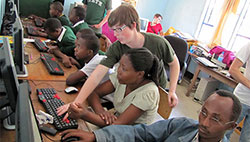
Africa, Tanzania
Designing Technology Solutions for Schools in Africa
Summer Faculty-led Program
Experience how information technologies can be harnessed to create practical solutions that make the world a better place. This service-learning program will give you the real-world opportunity to design and implement information technologies to help Tanzanian students in East Africa. Many companies are looking to international markets for future growth. Having this experience will broaden your worldview and increase your competitiveness.
The program gives you an opportunity to use your knowledge to create real-world solutions, and to make a positive impact in a developing part of the world. If you have an interest in IT, solar power, education, video creation, Africa or related issues you are encouraged to participate. TECHNICAL EXPERTISE IS NOT REQUIRED. ALL MAJORS ARE WELCOME! Also open to non-MSU students.
Location: Arusha, Tanzania and Mto wa Mbu, Tanzania
Semester: Summer (May - June)
Program Type: Faculty-led
Deadline: February 15
Housing: Students will be first staying at the Training Centre for Development Cooperation (MS-TCDC), a well-equipped training institute like a college campus with bungalows, internet, a library and classrooms. We will then move to Mto wa Mbu town to work in the schools and will stay at Twiga Campsite and Lodge in a nice motel-type accommodation.
Courses:
- MI 488 - Information and Communication Technologies for Development - 3-4 Credits
- EGR 488 - Information and Communication Technologies for Development - 3-4 Credits - enroll initially in MI 488 (can be changed to EGR 488 on return from Tanzania)
Program Contact: Dr. Erik Goodman (goodman@msu.edu), Department of Electrical and Computer Engineering
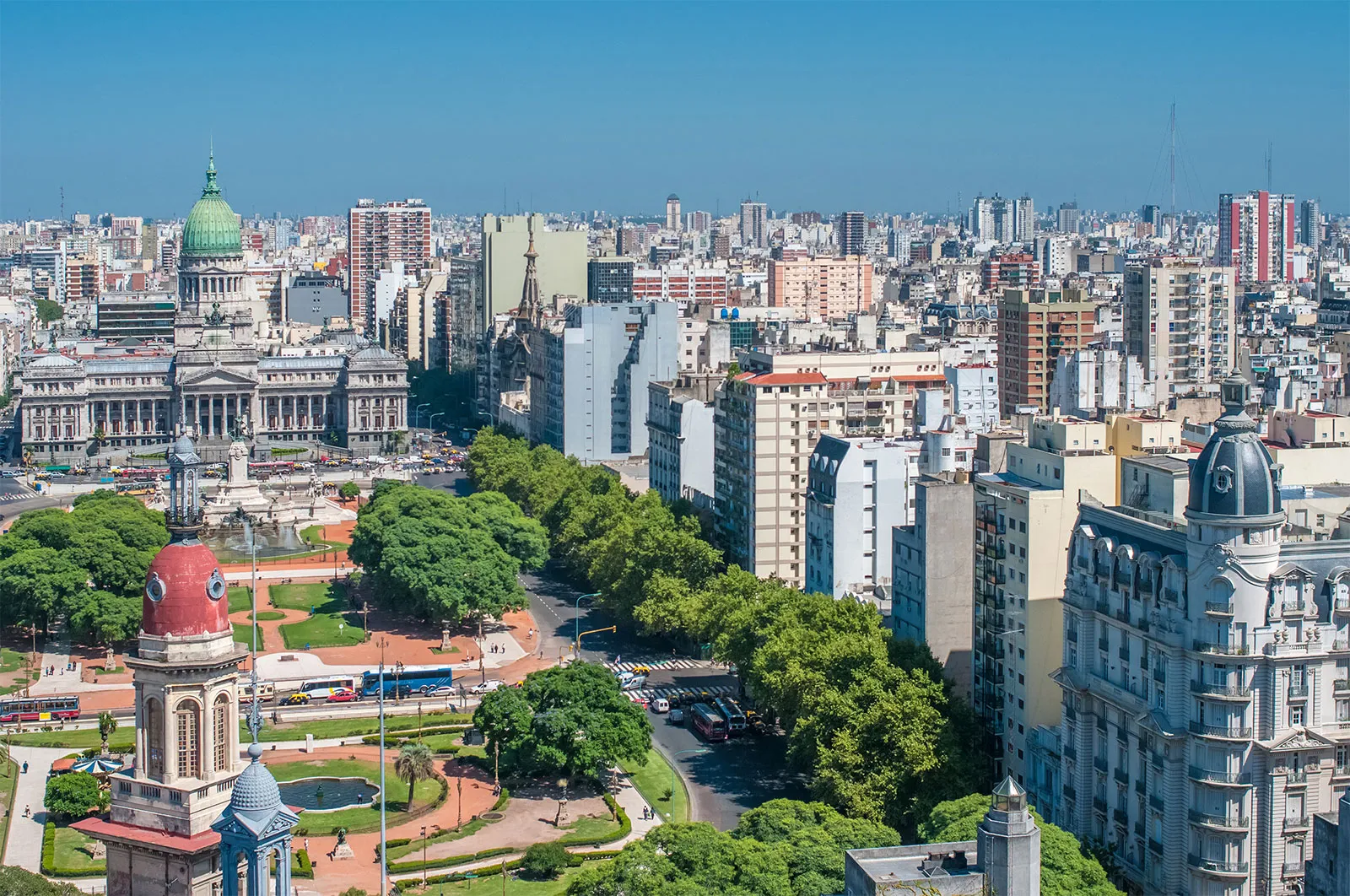
Argentina, Buenos Aires
CEA CAPA Buenos Aires Center
Summer Direct Enroll Program through CEA CAPA
In a city known for its cultural and social diversity and richness, Buenos Aires combines European style with its Latin heritage. As the capital city, it’s also the financial, industrial and commercial hub of Argentina, and home to more than 10 million residents. As an Engineering major, you’ll find this cosmopolitan city the ideal place to learn how to apply engineering solutions in a global context.
Location: Buenos Aries, Argentina
Semester: Summer
Program Type: Direct Enroll through CEA CAPA
Deadline: January 15 (Priority), February 1 (Final)
Housing: Shared apartment. Students can choose standard CEA CAPA housing - living in an apartment shared with other CEA CAPA students – or arrange their own independent housing. Assignments are based on availability and confirmation date.
Courses: Students will take PHY 184 & PHY 192 and 1 non-technical course (a total of 2 courses)
Program Contact: Jeffrey Tsang, Assistant Director of Advising Initiatives (tsangjef@msu.edu) Engineering Education Abroad
Apply on via TRM (Coming Soon)
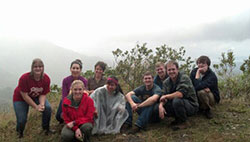
Costa Rica, San José
Ecological Engineering in the Tropics
Summer Faculty-led Program
Location: San José, Costa Rica
Semester: Summer
Program Type: Faculty-led
Deadline: February 1
Housing: Program participants will visit cities, villages, Universities, University research facilities, industries (e.g., ICE, ICafe, etc.), non-profits (e.g., INBio), museums, national parks, agribusinesses, and forests, as well as selected cultural and historical sites. Students also will be exposed to situations that help foster their growth as global citizens and professionals where hands-on labs/activities will be conducted in active-learning format to understand design, performance, installation and system evaluation.
University- related accommodations will be used where available, practical and cost effective with the desired standards and services needed. When used, motel/hotel accommodations would rate in the 3-star range using the US rating systems. All accommodation selection are in secure/safe areas per University standards and policy.
On average, 2 ½ meals per day will be included.
Courses:
Students will select one course.
- ANR 475 (International Studies Agriculture and Natural Resources) 4 credits
- BE 475 (International Studies in Biosystem Engineering) 4 credits
- EGR 475 (Special Topics in International Engineering) 4 credits
- BE 491 (Special Topics in in Biosystem Engineering) 4 credits
Program Contact: Dr. Luke Reese (reesel@msu.edu), Department of Biosystems and Agricultural Engineering

Czech Republic, Prague
CEA CAPA Prague Center
Summer Direct Enroll Program through CEA CAPA
With a reputation as one of the most beautiful cities in the world, you’ll study engineering and math amid the backdrop of centuries-old bridges, cathedrals, and church spires. Prague is also home to a rich modern culture filled with public art and whimsical architecture, and an inspiring intellectual community. Opportunities will abound to apply concepts learned in class to real-life examples in this historic city.
Location: Prague, Czech Republic
Semester: Summer
Program Type: Direct Enroll through CEA CAPA
Deadline: January 15 (Priority), February 1 (Final)
Housing: Shared apartment. Students can choose standard CEA CAPA housing - living in an apartment shared with other CEA CAPA students – or arrange their own independent housing. Assignments are based on availability and confirmation date.
Courses:
Students can take 1 technical course and 1 non-technical course (total of 2 courses) or just 1 technical course while on this program:
Technical
- MTH 234 (Calculus III)
- MTH 235 (Differential Equations)
- MTH 309 (Linear Algebra)
- STT 351 (Engineering Statistics)
- CSE 260 (Discrete Mathematics)
Non-Technical
- IAH 241F (Architecture and Art in the Golden City)
- IAH 231A or HST 452 (Sport and Culture in Contemporary Czech Republic)
- IAH 231A or FSC GCU (Czech Culture, Food and Brewing Tradition)
- IAH 231A or REL GCU (The Jewish Experience in Prague)
Program Contact: Liz Kubias, Academic Advisor (kubias@msu.edu) Engineering Education Abroad
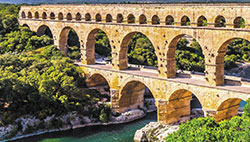
France, French Riviera
SKEMA Business School
Semester Direct Enroll Program through CEA CAPA
Take core courses for your science or engineering major or general electives in math, sciences, and humanities. You’ll attend class with French, European, and North American students at one of France’s leading schools in Europe's very own "Silicon Valley." Here, you'll have an extraordinary opportunity to study hard sciences—such as chemistry, biology, and physics—as well as courses in computer science and artificial intelligence or chemical, computer, electrical, and mechanical engineering, all taught in English. Most courses are geared toward first- or second-year students to provide a solid foundation in science and engineering. Supplement your studies with business, and communication courses, as well as general education courses such as humanities and psychology. While not required, you're encouraged to study French language, offered at all levels.
Location: Sophia Antipolis, France
Semester: Fall or Spring
Program Type: Direct Enroll through CEA CAPA
Deadlines: February 15 (Fall) | September 1 (Spring)
Housing: Students live in a shared apartment with other CEA CAPA students. Assignments are based on availability and confirmation date.
Courses: Students will take between 12-15 credits. Selection of CE, ME, MTH, PHY, IAH/ISS, other technical courses and general electives. Check course offerings and equivalencies page for more information.
Program Contact: Liz Kubias, Academic Advisor (kubias@msu.edu) Engineering Education Abroad

France, Paris
CEA CAPA Paris Center
Semester Direct Enroll Program through CEA CAPA
Set yourself apart from the competition by taking engineering and math courses abroad. Paris is a city where many scientists and mathematicians have made significant contributions to industry making it an ideal destination for engineering majors or students in other STEM fields looking to satisfy technical and/or math requirements. You’ll experience Paris as a learning lab through site visits and lectures which complement your classroom curriculum. Additional elective courses focus on aspects of French culture and may fulfill a humanities or social science requirement. While French language skills are not required for the program, you’ll likely acquire basic French and use it to navigate this historic city.
Location: Paris, France
Semester: Fall or Spring
Program Type: Direct Enroll through CEA CAPA
Deadlines: February 15 (Fall) | September 15 (Spring)
Housing: Students may select from standard CEA CAPA housing in a studio or shared apartment, or with a host family in a homestay. Assignments are based on availability and confirmation date.
Courses: Students take 12 credits. Selection of ECE, ME, MTH, general education, and elective courses. Check course offerings and equivalencies page for more information.
Program Contact: Liz Kubias, Academic Advisor (kubias@msu.edu) Engineering Education Abroad
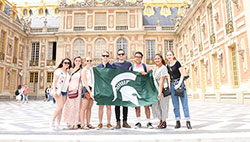
France, Paris
CEA CAPA Paris Center
Summer Direct Enroll Program through CEA CAPA
Set yourself apart from the competition by taking engineering courses abroad. Paris is an ideal destination for engineering majors, a city where many scientists and mathematicians have made significant contributions to the field. You’ll experience Paris as a learning lab through site visits and lectures which complement your classroom curriculum. Additional elective courses focus on aspects of French culture and may fulfill a humanities or social science requirement. While French language skills are not required for the program, you’ll likely acquire basic French and use it to navigate this historic city.
Location: Paris, France
Semester: Summer
Program Type: Direct Enroll through CEA CAPA
Deadline: January 15 (priority), February 1 (final)
Housing: Shared apartment. Students can choose standard CEA CAPA housing - living in an apartment shared with other CEA CAPA students – or arrange their own independent housing. Assignments are based on availability and confirmation date.
Courses: Students will take 1 technical and 1 non-technical course in Paris (total of 2 courses).
Technical
- MTH 234 (Calculus III)
- MTH 235 (Differential Equations)
- CE 221 (Statics)
- ME 201 (Thermodynamics)
Non-Technical
- ISS 320 (French Civilization & Culture)
- STA GCU (Photography in Paris)
- IAH 241C (Haute Couture in Paris: History of Style & Fashion)
- HST 452 (Sport & Culture in Contemporary France)
- IAH 241C (History of Paris: An Architectural Perspective)
Program Contact: Jeffrey Tsang, Assistant Director of Advising Initiatives (tsangjef@msu.edu) Engineering Education Abroad
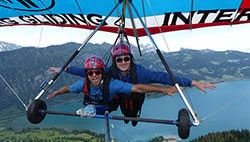
Germany, Aachen
RWTH Aachen UniversitySummer Exchange Program
Mechanical, Chemical, and Materials Engineering students are invited to spend their summer participating in an undergraduate research experience in Western Germany. Open to Mechanical, Chemical, and Materials Science Engineering majors only.
MSU’s Department of Mechanical Engineering has partnered with the Undergraduate Research Opportunities Program (UROP) at RWTH Aachen University to provide students with a world-class 10-week undergraduate summer research experience in German labs abroad. Juniors and Seniors will be able to conduct their own research project while being supervised by a member of the RWTH research staff. Students admitted to the program will also get to explore industrial activities and experience first-hand German culture and lifestyle.
RWTH is considered one of the top technical universities in all of Europe. Therefore, expectations for this program are high, especially given the course load. The schedule is flexible, allowing most students to take three-day weekends to allow for travel and exploration to surrounding communities.
Location: Aachen, Germany
Semester: Summer
Program Type: Exchange
Housing: MSU students will live in RWTH accommodations for the duration of their program.
Courses: The RWTH research program is a two-part experience spanning two semesters, with the summer semester spent on site.
The research topic is determined during the application process in the preceding fall semester. Upon applying, students will select their top two research areas as part of their RWTH application with guidance from Dr. Feeny. RWTH will notify students of research placements upon acceptance to the program.
Students are encouraged to explore research project ideas in the UROP Research Database
Part 1: Spring Semester preceding the summer study abroad term
- Student will enroll in one credit of ME 490, CHE 490 or MSE 490 Independent Study
- Research area will be the same as a the area they will pursue at RWTH
- Each participant will have an MSU faculty member overseeing the students work
Part 2: Summer Research Experience at RWTH
- Students will earn 9 MSU credits. All courses will be taught in English.
- Enrollment will be composed of ME 490 Independent Study (5 credits) for ME majors. For CHE majors, enrollment will be composed of CHE 490 for 3 credits and CHE GCU for 2 credits. For MSE majors, enrollment will be MSE 490 for 3 credits and MSE GCU for 2 credits. All students will take an intensive German language class (GRM 101, 201, 202, 290, 490 - appropriate to students proficiency level) (4 credits).
- Each student’s final research report will be assessed by the research faculty on-site. This assessment will be shared with the MSU faculty who oversaw the student’s spring studies. They will also make the final grade determination.
Program Contact: Dr. Brian Feeny (feeny@egr.msu.edu), Department of Mechanical Engineering

Hong Kong
Hong Kong University of Science and Technology (HKUST)
Summer and Semester Exchange Program
Engineering students are invited to soak up all that Hong Kong has to offer during a semester experience at HKUST.
This program type is designed for students seeking a rigorous and self-guided experience. To be successful, students must commit to uphold a significant degree of proactivity and professionalism. Students are often required to secure their own housing, book individual flights, obtain a student visa/residence permit, etc. Students are expected to familiarize themselves with program information and seek out additional support and resources as needed. Additionally, students can anticipate being one of few MSU students on this program during any given term.
Location: Hong Kong
Semester: Fall, Spring, or Summer
Program Type: Exchange
Deadlines: March 1 (Fall) | August 15 (Spring) | January 15 (Summer)
Housing: During the semester, MSU students studying at HKUST are offered on-campus housing in dormitories and university apartments. During the summer, program participants will be housed in double occupancy rooms on campus.
Courses: Selection of ME, CSE, CE, ECE, CHE, MTH, other technical courses and general electives. Check course offerings and equivalencies page for more information.
Program Contact: Jeffrey Tsang, Assistant Director of Advising Initiatives (tsangjef@msu.edu) Engineering Education Abroad
Semester: Apply on Via TRM
Summer: Apply on Via TRM

Ireland, Dublin
University College Dublin - Big 10 Physics and Irish Studies Program
Summer Direct Enroll
Location: Dublin, Ireland
Semester: Summer
Program Type: Direct Enroll
Deadline: January 15 (Priority), February 1 (Final)
Housing: Students will live in on-campus housing
Courses: Student will take all the following courses:
- PHY 184 (Physics for Scientists and Engineers II)
- PHY 192 (Physics II Lab)
- ISS 315 (Modern Irish Studies)
Program Contact: Jeffrey Tsang, Assistant Director of Advising Initiatives (tsangjef@msu.edu) Engineering Education Abroad

Ireland, Limerick
University of Limerick
Semester Direct Enroll Program through CIS Abroad
Study for a semester at the University of Limerick, nestled in an authentic Irish city with state-of-the art facilities, great housing options, and classes with local and international students. The city of Limerick offers plenty of opportunities to explore nearby castles, stroll along the River Shannon, and immerse yourself in the local culture.
Location: Limerick, Ireland
Semester: Fall or Spring
Program Type: Direct Enroll through CIS Abroad
Deadlines: February 15 (Fall) | September 15 (Spring)
Housing: Students reside on campus in a private residence hall room with ensuite bath. Assignments are based on availability and confirmation date.
Courses: Students take 12 credits. Selection of Engineering, general education, and elective courses. Check course offerings and equivalencies page for more information.
Program Contact: Liz Kubias, Academic Advisor (kubias@msu.edu) Engineering Education Abroad

Italy, Rome
CEA CAPA Rome Center
Summer Direct Enroll Program through CEA CAPA
Stay on track with your engineering degree while setting yourself apart from the competition. Study in Rome, where you’ll explore more than 2,000 years of global power and influence. You’ll have the opportunity to enroll in a core engineering course alongside elective courses. Elective courses focus on an aspect of Italian culture, which may fulfill a humanities or social science requirement. While Italian language isn’t required, we’ll help you gain some basic communication skills to navigate this historic city.
Location: Rome, Italy
Semester: Summer
Program Type: Direct Enroll through CEA CAPA
Deadline: January 15 (priority), February 1 (final)
Housing: Shared apartment. Students can choose standard CEA CAPA housing - living in an apartment shared with other CEA CAPA students – or arrange their own independent housing. Assignments are based on availability and confirmation date.
Courses: Students can take ONE technical plus ONE or TWO non-technical courses. Max of 3 classes.
Technical
- Thermodynamics (ME 201)
- Introduction to Programming (CSE 231)
- Thermodynamics with Chemical Engineering Module (CHE 321)
- Non-Technical
Non-Technical
- Art & Archaeology of Ancient Rome (IAH 221A)
- Social History of the Italian Mafia (IAH 221C/HST 452)
- The Culture of Food & Wine in Italy (FSC GCU)
- The Imitation of Nature (IAH 231A)
Program Contact: Jeffrey Tsang, Assistant Director of Advising Initiatives (tsangjef@msu.edu) Engineering Education Abroad

Italy, Sorrento
Summer on the Italian Coast - Engineering
Summer Direct Enroll Program through CIS Abroad
Take an equivalent of Physics II + lab and 1-2 non-engineering courses by day, and retreat to the romantic piazzas or festive restaurants overlooking the sea by night. This program, vetted by the University of Michigan International Engineering Programs, offers you a chance to enjoy the summer abroad while getting ahead in a core class necessary to your engineering degree. Others courses on offer include Italian, international tourism, marketing, archeology, and sustainability. The Sant’Anna Institute encourages students to become members of this special community on the Mediterranean during their time abroad. Local shop owners will come to know you, with your discount card that’s valid at a number of stores and restaurants in Sorrento. Visit Pompeii, nearby Naples, and Capri to expand your knowledge of the southern Italian coast.
Location: Sorrento, Italy
Semester: Summer
Program Type: Direct Enroll through CIS Abroad
Deadline: January 15 (priority), February 1 (final)
Housing: Shared apartment or on-campus dorms. Assignments are based on availability and confirmation date.
Courses: Students will take Physics 2 + Lab plus ONE or TWO non-technical courses. Max of 3 classes.
Program Contact: Jeffrey Tsang, Assistant Director of Advising Initiatives (tsangjef@msu.edu) Engineering Education Abroad
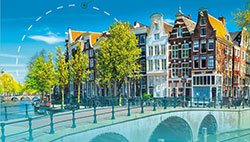
Netherlands, Amsterdam
Vrije Universiteit Amsterdam
Semester Direct Enroll Program through CEA CAPA
Fall in love with one of the most eclectic and culturally rich cities in Europe. Home to residents from over 180 nationalities, cultures, religions, and backgrounds, Amsterdam is on the cutting edge of using technology and data to improve city services and environmental sustainability. When you study Computer Science at VU - Amsterdam you’ll explore the aspects of Networks and Security and be taught by lecturers who conduct high-level research, all while maintaining connections with industry. Classes are taken alongside Dutch and other international students. VU Amsterdam is a highly competitive program for upper-level students pursuing Computer Science or Computer Engineering.
Location: Amsterdam, Netherlands
Semester: Fall or Spring
Program Type: Direct Enroll through CEA CAPA
Deadlines: January 15 (Fall) | August 15 (Spring)
Housing: CEA CAPA standard housing in a shared or private Aparthotel. Assignments are based on availability and confirmation date.
Courses: Students will take between 12-15 credits. Selection of CSE, technical, general education, and elective courses. Check course offerings and equivalencies page for more information.
Program Contact: Liz Kubias, Academic Advisor (kubias@msu.edu) Engineering Education Abroad

Scotland, Edinburgh
Edinburgh Napier University
Semester Direct Enroll Program through CIS Abroad
Study at one of the top institutions in the UK! Edinburgh Napier University boasts three distinct campuses: Sighthill Campus (applied sciences), Merchiston Campus (humanities), and Craiglockhart Campus (business). Nestled in the hilly Central Lowlands of Scotland, you will find a blend of both old- and new-world charm in Scotland’s capital city.
Location: Edinburgh, Scotland
Semester: Fall or Spring
Program Type: Direct Enroll through CIS Abroad
Deadlines: February 15 (Fall) | September 15 (Spring)
Housing: Students reside in a single room with ensuite bath in a shared on-campus apartment. Assignments are based on availability and confirmation date.
Courses: Students take 12 credits. Selection of Engineering, general education, and elective courses. Check course offerings and equivalencies page for more information.
Program Contact: Liz Kubias, Academic Advisor (kubias@msu.edu) Engineering Education Abroad

South Korea & Japan, Seoul & Tokyo
Global Engineering in Seoul and Tokyo
Summer Faculty-led Program
Two-week program in Seoul and/or Tokyo offers students first-hand exposure to Asia’s tech industries through company visits and cultural experiences, providing insight into engineering in South Korea and Japan.
Location: Seoul, South Korea
Semester: Summer
Program Type: Faculty-led
Deadlines: January 15
Housing: Serviced apartments in Seoul and Tokyo. Twin rooms, private bathrooms, and a kitchenette.
Courses: EGR 291 (3 credits) – can count as general elective credits
Program Contact: Jeffrey Tsang, Assistant Director of Advising Initiatives (tsangjef@msu.edu) Engineering Education Abroad
Apply on via TRM (coming soon)

South Korea, Seoul
Yonsei University
Summer Exchange Program | Summer Direct Enroll Program
Experience living life like a local. Spend a semester in Seoul, South Korea taking courses alongside local Korean and international students.
This program type is designed for students seeking a rigorous and self-guided experience. To be successful, students must commit to uphold a significant degree of proactivity and professionalism. Students are often required to secure their own housing, book individual flights, obtain a student visa/residence permit, etc. Students are expected to familiarize themselves with program information and seek out additional support and resources as needed. Additionally, students can anticipate being one of few MSU students on this program during any given term.
Location: Seoul, South Korea
Semester: Fall, Spring, or Summer
Program Type: Exchange
Deadlines: March 1 (Fall) | October 1 (Spring) | February 15 (Summer)
Housing: Yonsei University offers international student dormitory-style housing. On-campus housing is not guaranteed due to extremely limited spaces. If full, students will be required to secure their own accommodation in Seoul. The dorms consist of a mix of Korean and international students. Occupancy: Yonsei offers double and single-occupancy room options.
Courses: Selection of ME, CSE, ECE, CE, ENE, other technical courses and general electives. Check course offerings and equivalencies page for more information.
Program Contact: Jeffrey Tsang, Assistant Director of Advising Initiatives (tsangjef@msu.edu) Engineering Education Abroad
Semester: Apply on Via TRM
Summer: Apply on Via TRM

South Korea, Seoul
Sogang University
Semester Direct Enroll Program through CIS Abroad
Head to Seoul for a wonderful contrast of history and modernity. You'll make your home base at Sogang University, one of the leading research and liberal arts universities in South Korea. You’ll be among many serious students from South Korea, as well as numerous international students. Be sure to check out the Sunrise Festival at the beginning of the semester hosted by student clubs who welcome new students to the school and the many day trips and events offered by the CIS Abroad staff.
Location: Seoul, South Korea
Semester: Fall or Spring
Program Type: Direct Enroll through CIS Abroad
Deadlines: February 15 (Fall) | September 15 (Spring)
Housing: Students reside in a single room in a shared apartment with kitchen, laundry, and bathroom. Assignments are based on availability and confirmation date.
Courses: Students take 12 credits. Selection of Engineering, general education, and elective courses. Check course offerings and equivalencies page for more information.
Program Contact: Liz Kubias, Academic Advisor (kubias@msu.edu) Engineering Education Abroad
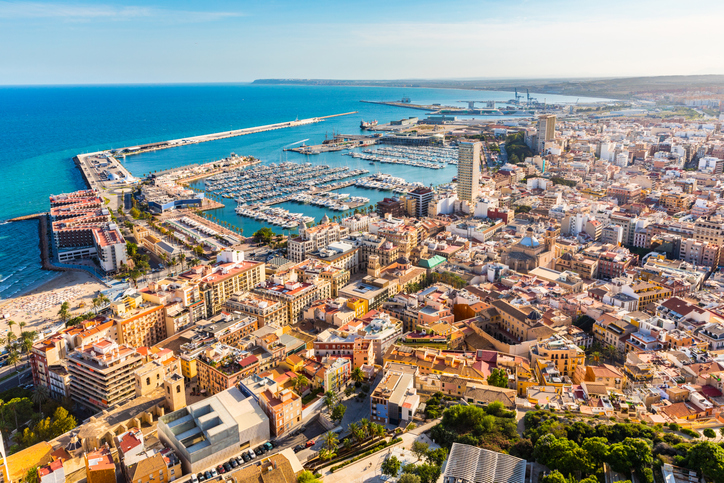
Spain, Alicante
Universidad de Alicante
Semester Direct Enroll Program through CEA CAPA
Take the opportunity to complete STEM courses and learn alongside local Spanish and other international students while staying on track for graduation, at our partner, University of Alicante. You’ll also improve your Spanish language skills by taking a language course and can complement your studies with courses in subjects like literature, business, political science, and humanities to earn credit for elective or general education requirements.
Location: Alicante, Spain
Semester: Fall or Spring
Program Type: Direct Enroll through CEA CAPA
Deadlines: February 15 (Fall) | September 15 (Spring)
Housing: Students may select from standard CEA CAPA housing in a private room in a campus dormitory or with a host family in a homestay. Assignments are based on availability and confirmation date.
Courses: Students take 12 credits. Selection of Engineering, technical, general education, and elective courses. Check course offerings and equivalencies page for more information.
Program Contact: Liz Kubias, Academic Advisor (kubias@msu.edu) Engineering Education Abroad

Spain, Barcelona
CEA CAPA Barcelona Center
Summer Direct Enroll Program through CEA CAPA
Stylish. Cosmopolitan. Eccentric. There are many reasons why our study abroad program in Barcelona is CEA CAPA's most popular — explore this amazing metropolis with us! It's really the all-in-one-city where nature, culture, gastronomy, and social life meet all in the same place. Spain's second-largest city offers an ideal blend of historic and modern, combining Gothic charm with thriving immigrant cultures, Gaudí's quirky architecture with world-class dining and shopping... and some of Spain's best universities are here, too. Whether you want to study business or liberal arts, immerse in Catalan culture, or improve your Spanish skills, you'll find what you seek when you study abroad in Barcelona.
Location: Barcelona, Spain
Semester: Summer
Program Type: Direct Enroll through CEA CAPA
Deadlines: January 15 (priority), February 1 (final)
Housing: Shared apartment. Students can choose standard CEA CAPA housing - living in an apartment shared with other CEA CAPA students – or arrange their own independent housing. Assignments are based on availability and confirmation date.
Courses: Students can take ONE technical plus ONE or TWO non-technical courses. Max of 3 classes.
Technical
- Introduction to Programming (CSE 231)
- General Biology with Lab (Need to be evaluated)
Non-Technical (Need to be evaluated)
- Architecture & Painting in Barcelona
- International Business
- Social Media: Digital Identity & the Virtual Community
- Food and Culture in Spain
- International Journalism & Global Media
- International Marketing
- AI in Creative Fields
- Photography in Barcelona
Program Contact: Jeffrey Tsang, Assistant Director of Advising Initiatives (tsangjef@msu.edu) Engineering Education Abroad
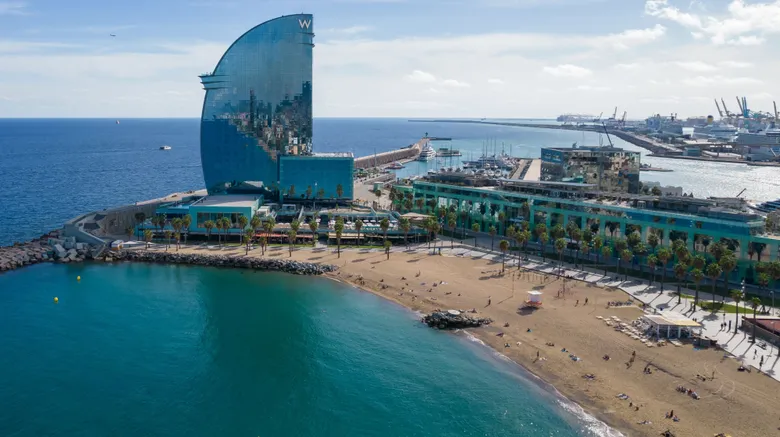
Spain, Madrid
CEA CAPA Madrid Center
Summer Direct Enroll Program through CEA CAPA
Spend your summer studying engineering and math concepts in Madrid, one of Europe’s fastest-growing tech hubs. Math and elective courses are taught in English, so no Spanish is required, although there will be plenty of opportunities to develop your Spanish language skills as you explore this cosmopolitan capital city. Take advantage of the chance to satisfy some of your degree requirements while taking in the rich culture and history Madrid has to offer.
Location: Madrid, Spain
Semester: Summer
Program Type: Direct Enroll through CEA CAPA
Deadlines: January 15 (priority), February 1 (final)
Housing: Shared apartment. Students can choose standard CEA CAPA housing - living in an apartment shared with other CEA CAPA students – or arrange their own independent housing. Assignments are based on availability and confirmation date.
Courses: Students can take ONE technical plus ONE non-technical courses. Max of 3 classes.
Technical
- Calculus III (MTH 234)
- Engineering Statistics (STT 351)
- Discrete Mathematics (CSE 260)
- Dynamics (ME 361)
Non-Technical (Need to be evaluated)
- Spanish Civilization and Culture
- Sustainable Development in Madrid
Program Contact: Jeffrey Tsang, Assistant Director of Advising Initiatives (tsangjef@msu.edu) Engineering Education Abroad
Apply on via TRM
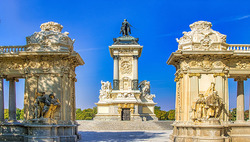
Spain, Madrid
Summer Engineering in Madrid
Summer Faculty-led Program
During this summer engineering program, MSU students will have the opportunity to study Spanish and take an engineering course at one of the oldest and largest of the Spanish Technical Universities, Polytechnic University of Madrid (UPM). UPM has more than 3,000 faculty members, 18,000 undergraduate students, and 8,000 graduate students. UPM is the leading technical university in Spain, and many of the leading Spanish educators and researchers have been involved either as students or teachers. Participants will also be able to visit nearby historical and cultural field trips as a part of the program.
Location: Madrid, Spain
Semester: Summer
Program Type: Faculty-led
Deadline: March 1
Housing: Students will live in dormitory-style residences with furnished bedrooms and full bathroom. Three meals will be provided each day.
Courses: Students will pick one option- (To be confirmed)
- Option A: ME 222 (Mechanics of Deformable Solids) + SPN 290 (Independent Study)
- Option B: MSE 250 (Materials Science and Engineering) + SPN 290 (Independent Study)
*These courses are MSU courses and will be graded as such.
Program Contact: Dr. Carl Boehlert (boehlert@msu.edu) Department of Chemical Engineering

Spain, Madrid
Universidad Carlos III de Madrid (UC3M)
Semester Direct Enroll Program through CEA CAPA
Expand the scale and scope of your engineering coursework by studying abroad at the Universidad Carlos III de Madrid (engineering courses and programs are accredited by the European Network for Accreditation of Engineering Education, EUR-ACE). Located in Madrid, Spain’s capital and largest city, you can experience the sophisticated vibe that’s evident in its world-class culinary culture and thriving art scene. With almost 100 STEM courses available each semester, for every year of study, you are strongly encouraged to work with an advisor to identify the correct courses to fit in your degree plan.
Location: Madrid, Spain
Semester: Fall or Spring
Program Type: Direct Enroll through CEA CAPA
Deadlines: February 15 (Fall) | September 15 (Spring)
Housing: Students may select from standard CEA CAPA housing in a shared apartment, a private or shared room in a campus dormitory, or with a host family in a homestay. Assignments are based on availability and confirmation date.
Courses: Students take 12 credits. Selection of AES, CSE, ECE, ME, MSE, PHY, MTH, technical, general education, and elective courses. Check course offerings and equivalencies page for more information.
Program Contact: Liz Kubias, Academic Advisor (kubias@msu.edu) Engineering Education Abroad
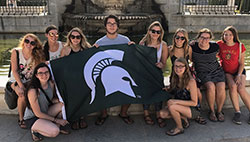
Spain, Madrid
University of Politécnica de Madrid
Semester Exchange Program
Engineering students are invited to spend a semester in Madrid studying alongside local Spaniards.
This program type is designed for students seeking a rigorous and self-guided experience. To be successful, students must commit to uphold a significant degree of proactivity and professionalism. Students are often required to secure their own housing, book individual flights, obtain a student visa/residence permit, etc. Students are expected to familiarize themselves with program information and seek out additional support and resources as needed. Additionally, students can anticipate being one of few MSU students on this program during any given term.
Location: Madrid, Spain
Semester: Fall or Spring
Program Type: Exchange
Deadlines: March 1 (Fall) | September 1 (Spring)
Housing: Students participating on the UPM program are responsible for securing their own accommodations for their time in Spain. UPM recommends students book temporary housing for the first two weeks on-site and secure your housing contract once you have had the opportunity to see it in person. Although accommodation is the responsibility of the student, UPM does provide some guidance on reputable places to begin your search. For more information, please visit their accommodation website.
Courses: Selection of MSE, CHE, ME, technical, general education, and elective courses. Check course offerings and equivalencies page for more information.
Program Contact: Lindsay Naylor, Assistant Director of Advising (naylorli@msu.edu) Engineering Education Abroad
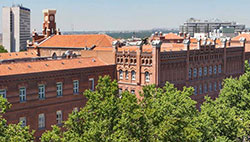
Spain, Madrid
Universidad Pontificia Comillas
Semester Exchange Program
Location: Madrid, Spain
Semester: Fall or Spring
Program Type: Exchange
Deadlines: March 1 (Fall) | September 1 (Spring)
Housing: Universidad Pontificia Comillas does not have its own student accommodations. It is the student’s responsibility to secure their own housing for the duration of their program. However, the university does provide resources that connect students to reputable student housing options in Madrid. For additional options, please visit the Universidad Pontificia Comillas accommodation website.
Courses: Selection of ME, MTH, PHY, MSE, CEM, BS, SPN, technical, general education, and elective courses. Check course offerings and equivalencies page for more information.
Program Contact: Lindsay Naylor, Assistant Director of Advising (naylorli@msu.edu) Engineering Education Abroad
Jeffrey Tsang
Assistant Director for Advising Initiatives
Program contact: CEA CAPA summer programs in Barcelona, Buenos Aires, Madrid, Paris, Prague, and Rome, Summer on the Italian Coast, Dublin Big 10 Program, Hong Kong University of Science and Technology, Yonsei University, and International Internships
Liz Kubias
Academic Advisor
Program contact: VU Amsterdam, UC3M, SEKMA, Alicante, Paris Semester, Sogang, Limerick, and Edinburgh Napier University
Lindsay Naylor
Assistant Director for Advising
Program contact: Research programs abroad, UPM, and Comillas
